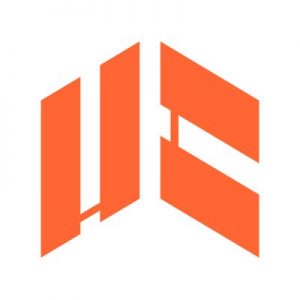
Electrolux is a leading global appliances company, producing a wide range of consumer electrical goods, including washing machines, cookers, vacuum cleaners, refrigerators, etc. Since 2017, Electrolux has been investing in ‘connected appliances’ as part of its digital transformation agenda, and to shift its business model from the traditional business-to-business (B2B) to business-to-consumer (B2C).
In 2020, Electrolux and IBM’s The Weather Company announced a new collaboration to use location-based Artificial Intelligence (AI) to enhance customer experience and help increase the energy efficiency of home appliances in order to reduce their impact on the environment.
IBM’s weather API (Application Programming Interface) provides hyper-localized data on air quality, pollen levels, humidity and temperature to Electrolux. This data is then used as a basis for smart app recommendations about when to use appliances such as clothes dryers, air purifiers and air conditioners. For example, after reading the weather forecast, the smart app will give recommendations on the best time to start the dryer because it’s about to rain, or when to turn off the air purifier because the air quality that day is good.
With supervision from an experienced team of meteorologists, IBM uses AI and analytics to pull weather models together with relevant data sources and arrive at the most accurate forecast. The process includes a next-generation AI-enabled weather forecasting model called IBM GRAF (Global High-Resolution Atmospheric Forecasting) system. IBM GRAF uses Machine Learning to rapidly update atmospheric changes hourly and at a 3km resolution.
The real-time, location-based weather predictions are made available through the Electrolux Life App. Users are prompted to use their clothes dryer when rain is forecasted or when the air quality is not acceptable for air-drying. Similarly, the application recommends not to use the dryer when the outdoor weather is optimal for air-drying, thus saving energy.
The app can also control inputs for other appliances, such as the humidity control for air conditioners and accurate readings of indoor and outdoor weather to inform the use of air purifiers. An entire ecosystem of multiple connected appliances benefits from access to accurate weather forecasts, as well as environmental factors such as air quality, pollen, pollution and more.
In 2019, Electrolux kicked off trials of new hardware-as-a-service business models in Sweden and China, enabling consumers to subscribe to, rather than purchase, its products.
For instance, in Sweden, customers can subscribe to a robotic vacuum cleaner on a pay-per-use basis from only 1 SEK per sq m cleaned. The vacuum cleaner is equipped with a variety of sensors and software, including a location-based 3D Vision camera and laser for accurate navigation and area cleaned calculation. With Electrolux connected ecosystem technology, users can control the product via an app and schedule cleaning when they are away from home as well as monitor the number of sq m cleaned each month.
Electrolux also uses AI to plan and predict demand. By enhancing its historical sales data with data from external sources, the company ensures that retailers have the right goods when customers are demanding them.
For example, weather data is used to predict sales of air conditioners during summer time in Sweden. Using advanced statistical models, the data science team at Electrolux predicts the exact amount of the right products to be supplied to retailers at specific times of the year.
In addition to weather data, the company also monitors the Internet for online reviews, ratings and prices of products in both retail stores and online stores, including price promotions by competitors. It uses this data to avoid oversupply, hence retailers do not need to offer excessive discounts due to overstocking.
Since Electrolux products are supplied to different parts of the world, location technology is crucial to tune its manufacturing, distribution and customer supply chain. Based on the demand prediction, products are distributed from warehouses near the factories or plants, to redistribution centres. The demand planning practice helps optimize suppliers, logistics chains and transport, giving Electrolux a competitive advantage in the white goods market.


MySejahtera is an app developed by the Government of Malaysia to assist in managing the COVID-19 outbreaks in the country. It allows users to perform health self-assessment on themselves and
The second day of the Eye on Earth Conference and Exhibition saw an esteemed group of speakers including President Bill Clinton, Sha Zukang, Achim Steiner, Monique Barbut, Hernando de Soto, Mark Plotkins, Gilberto Camara….
© Geospatial Media and Communications. All Rights Reserved.